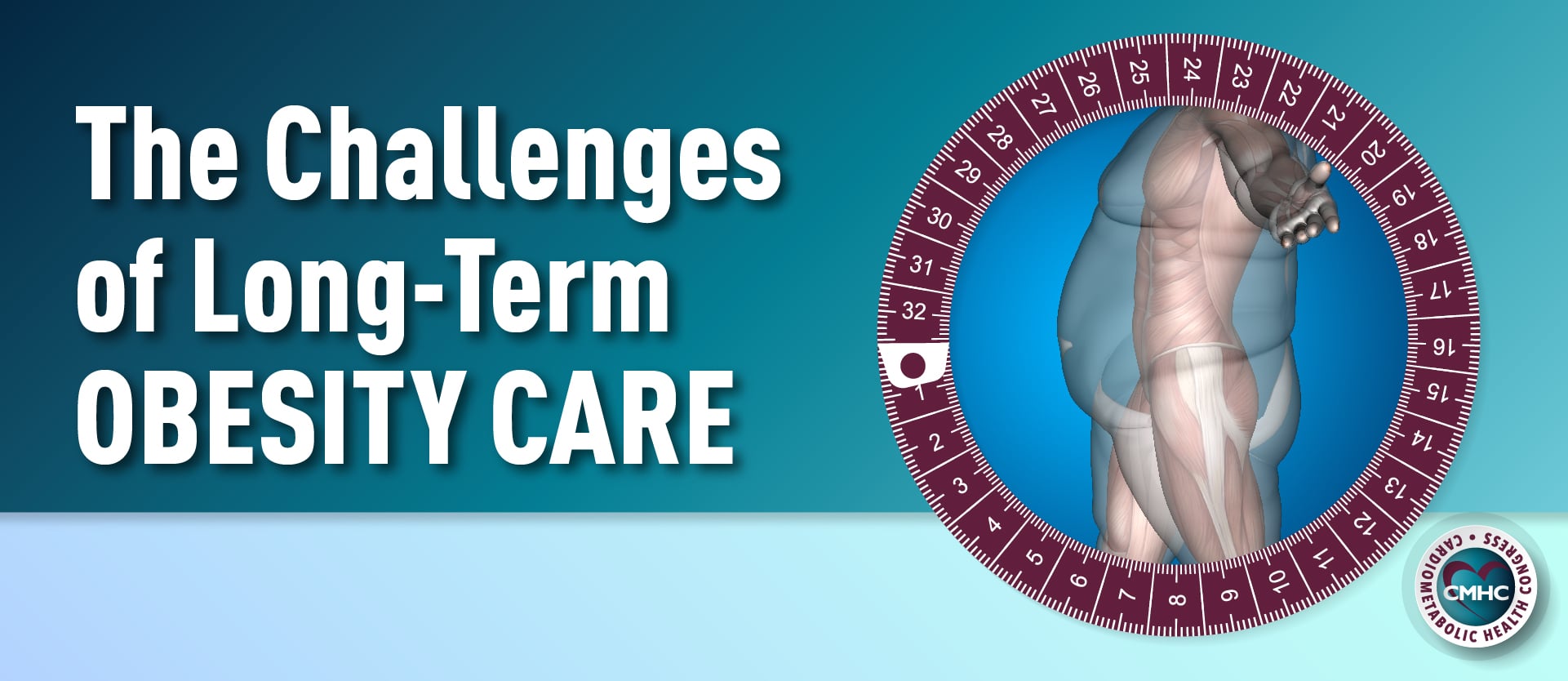Several of the leading causes of death across the globe are diseases related to the obesity epidemic, such as ischemic heart disease, cancer, and stroke. High-calorie diets, sedentary lifestyles, and recently, pandemic lockdown measures have contributed to a continuous rise in obesity prevalence. Widespread stay-at-home orders and a shift toward remote life have had a negative impact on a range of weight management practices causing experts to forecast a significant worsening of the obesity epidemic in coming years.
The current approach toward obesity care, which prioritizes weight loss as part of a typically short-term solution, is not sufficient to effectively manage this condition. A new message for both patients and providers is needed – one that classifies obesity as a chronic disease requiring comprehensive management to avoid weight regain and prevent health complications.
Current Status of Obesity Management
Often times, weight loss is viewed as an acute goal for overweight or obese patients under the belief that short-term lifestyle modifications, such as consuming fewer calories and exercising more, are adequate solutions. Although weight loss can be achieved using a variety of methods and modifications, long-term maintenance of a healthy weight has proven to be a challenge. Obesity interventions typically result in early rapid weight loss followed by a plateau and progressive regain.
As a chronic and relapsing disease, obesity impairs metabolism while causing cardiovascular diseases. Lifestyle interventions and behavioral modifications are important for the treatment of obesity yet may be difficult to maintain in order to achieve ideal weight or sustain long-term weight loss. Obesity control guidelines strongly recommend the use of medical treatment for overweight patients as well; evidence suggests that pharmacotherapy in combination with behavior-based interventions can result in significant weight loss and improved cardiometabolism.
Our current understanding of obesity as a multi-factorial chronic disease requires a profound shift in approach toward long-term management for successful weight loss, weight gain prevention, and optimal health effects. There needs to be a change in focus from weight loss, which is only one component of obesity interventions, to long-term medical attention sustained by systemic efforts to eliminate barriers to effective care.
Barriers to Care
A significant challenge that patients face in their battle against obesity are barriers to care which can be addressed by primary care physicians and other members of the healthcare team.
“Despite changing attitudes towards obesity and its increasing recognition as a chronic, serious and progressive disease, many barriers to effective care remain,” Leah D. Whigham, PhD, FTOS, associate professor in the department of health promotion and behavioral sciences and director of the Center for Community Health Impact at the University of Texas Health Science Center, said during a recent virtual conference. “These barriers are reflected in the insufficient interaction between patients and health care professionals relating to dialogue and treatment of obesity.”
Per Dr. Whigham, the main barriers to obesity care include challenges in maintaining weight loss, inaccurate perceptions of wellness programs, reluctance toward seeking help, insufficient diagnosis, as well as inadequate dialogue and follow up protocols. Data from the nationwide ACTION study reveals that up to 72% of surveyed health care providers reported a sense of responsibility to contribute to patients’ weight loss interventions, yet 82% of patients reported viewing weight loss as their own responsibility. The study also reported that only 55% of surveyed patients reported receiving a formal diagnosis of obesity, 38% reported discussing a weight loss plan with their health care provider, and only 24% reported making a follow-up appointment.
There is an important opportunity for providers to close these gaps and address obesity with their patients as 54% of patients reported completely agreeing that weight loss was a high priority and 40% felt motivated to lose weight. With the appropriate guidance and care, struggling patients can obtain the support and medical attention they need to reach their weight loss goals.
Goal: Comprehensive, Long-Term Obesity Care
With 1.5 billion people across the globe struggling with obesity today, adjusting treatment and therapeutic goals toward long-term weight management is necessary and will enhance success while reducing comorbid conditions. Addressing the challenges patients face will require personalized and evidence-based interventions as part of a larger comprehensive management strategy. In an ideal environment, obesity care includes the treatment of comorbidities such as diabetes; treatment of obesity through lifestyle modification, increased activity, dietary changes, medication, and surgery; and the prevention of weight regain.
Takeaways
The current approach to obesity management relies primarily on short-term solutions often resulting in weight regain and the development of cardiometabolic conditions over time. In light of continuously rising prevalence, there is a pressing need for long-term obesity care that incorporates sustained clinical attention and weight maintenance-specific counseling to support sustainable behaviors and positive weight regulation.
Our upcoming 16th Annual CMHC Pushing Boundaries in Cardiometabolic Health: Challenges and Controversies will spotlight approaches and actionable strategies to cardiometabolic care. With a focus on the latest evidence-based interventions, the premier event in cardiometabolic medicine will equip clinicians with the necessary tools to transform the current standard of obesity management.


















